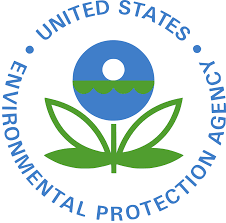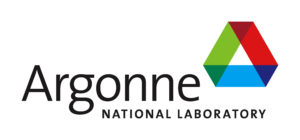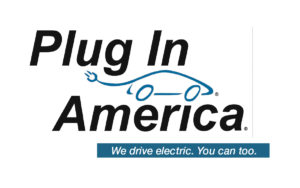EPA has 11 upcoming webinars on climate and energy topics offered by federal agencies and others.
(All webinars are offered free of charge, but space may be limited)
Email EPA if you have upcoming webinars you would like us to include in future newsletters.
Visit our website for energy resources for state, local, and tribal governments. Our archived webinars can be found
here.
Energy Star Webinars
November 6 and 20, Noon (ET) – Ask the Expert
Every other Wednesday ENERGY STAR holds a Portfolio Manager “Ask the Expert” session. It’s a live webinar that gives all users an opportunity to ask their questions directly to EPA experts in an open forum. Want to talk to a “real” person? Have a question about how Portfolio Manager calculates your score? Want to learn more about entering Green Power? Join ENERGY STAR, and they’ll answer all your questions about ENERGY STAR Portfolio Manager in this public forum.
November 12, 2 PM (ET) – Financing Energy Efficiency Projects: What to Know Before You Sign
Learn the ins and outs of how to finance energy efficiency projects at public sector, commercial and industrial buildings. The webinar will review key considerations managers should make while comparing financing options, tax strategies, and energy goals. Furthermore, this webinar will also touch on energy performance contracting and off-balance sheet financing.
November 14, 1 PM (ET) – Portfolio Manager 201
Continue to learn about EPA’s ENERGY STAR Portfolio Manager tool with a deeper dive into more advanced functionalities such as: editing property data; correcting and updating property use details; using the data quality checker; and sharing property data.
November 26, 1 PM (ET) – Portfolio Manager 301
With a good background on the basic functionality of EPA’s ENERGY STAR Portfolio Manager tool, learn about some advanced features including: using spreadsheet upload templates to update property data; setting goals and targets to plan energy improvements for properties; creating custom reports; and using the Sustainable Buildings Checklist.
Clean Coalition Webinars
November 19, 2 PM (ET) – Building Electrification 101
By the end of 2020, about 40% of Californians will live in a city or county that has passed a local ordinance to phase out natural gas. Whether through incentives or outright bans, these ordinances aim to reduce both post-earthquake fire danger and municipalities’ contribution to climate change. Going all-electric also makes our communities far more resilient.
The trend toward all-electric buildings, which began in 1993, extends beyond California to the rest of the US and has gained speed over the last decade as high-quality electric equipment has become available.
Clean Energy States Alliance Webinars
November 19, 1 PM (ET) – Energy Storage 101, Part 3: Applications and Economics
Numerous opportunities for revenue and cost savings have been identified for energy storage on both sides of the meter, including frequency regulation, demand charge management, arbitrage, ancillary services, T&D deferral and others. This webinar will look at when and where these opportunities exist, which services can be effectively “stacked,” how revenue-generating opportunities are sometimes limited due to market rules or utility tariffs, and what future opportunities might arise with changes in market rules and regulations.
C2ES Webinars
November 20, 1 PM (ET) – Clean Energy Standards: Policy Proposals for the Power Sector and Beyond
The power sector of the United States is transitioning to cleaner electricity sources. Accelerating this transition is an important policy goal with numerous benefits—reductions in harmful greenhouse gases and other pollutants, diversification of energy supply, and the growth of new clean energy industries. Cleaner electricity is also a necessary predicate to decarbonizing a large majority of other energy uses, such as transportation, building, and industry energy use.
A clean energy standard is one approach to increase the proportion of electricity generated by clean sources. How are states proceeding on clean energy standards? What are the latest developments at the federal level? This webinar will explore benefits, challenges, and options for a clean energy standard, which when coupled with trading can be a highly efficient market-based policy. Additionally, the webinar will consider the potential to integrate a clean energy standard with greenhouse gas reduction programs in other sectors.
National Adaptation Forum Webinars
November 13, 2 PM (ET) – Dibaginjigaadeg Anishinaabe Ezhitwaad: A Tribal Climate Adaptation Menu for Indigenous-led Climate Adaptation
Traditional and Indigenous knowledge and perspectives have not often been recognized in planning resources for climate adaptation in natural and cultural resource management. This webinar will introduce participants to
Dibaginjigaadeg Anishinaabe Ezhitwaad: A Tribal Climate Adaptation Menu, a new tool to assist in developing specific adaptation actions that recognize and incorporate tribal perspectives. The Tribal Climate Adaptation Menu may be used as a tool to help bridge communication barriers for non-tribal persons or organizations interested in indigenous approaches to adaptation and the needs and values of diverse tribal communities.
National Renewable Energy Laboratory Webinars
November 13, 1 PM (ET) – Sharing the Sun: U.S. Community Solar Data and Cost
The U.S. community solar market is growing rapidly, with more than 1.5 GW-AC of projects installed and more growth expected in several key states. This webinar will present trends in community solar deployment across the country, with a focus on the types of subscriptions being offered and their value proposition to subscribers.
Using data collected from industry partners and publicly available information, we will address key questions such as: How are customers paying for community solar? It is upfront or ongoing, or a hybrid model? What is the estimated net present value of different contract structures in different state markets? The webinar seeks to inform utilities, community solar developers, state policymakers, and the academic community.
Presenters:
· Jenny Heeter, NREL (moderator)
· Eric O’Shaughnessy, Clean Kilowatts, LLC
· Gabriel Chan, University of Minnesota
PACENation Webinar Series for State and Local Officials and their Partners
November 12, 2 PM (ET) – C-PACE: Commercial PACE is Taking Off
In collaboration with the National Association of Counties and the National League of Cities, PACENation is hosting a new webinar series starting in November to support the growth of property assessed clean energy (PACE) financing in new and existing markets. This series will address recent developments and common questions related to both commercial and residential PACE programs.
This webinar will focus on C-PACE exclusively, which is now widely available throughout the United States. The webinar is designed for those interested in ways to make C-PACE available in their jurisdictions. Participants will learn about different ways to implement C-PACE, the roles of market participants in building scale, emerging standards and best practices for C-PACE implementation, trends in how C-PACE is being used, and examples of C-PACE projects. For more information on DOE PACE resources, visit the
PACE Programs web page.
Security and Sustainability Forum (SSF) Webinars
November 13, 12:30 PM (ET) – How do Policy Makers Access and Use Evidence to Address Complex Problems
In advance of the National Council for Science and the Environment 2020 Annual Conference on Science in Environmental Decision-Making, this webinar will explore examples shared by policymakers and scientists that demonstrate how evidence can more effectively serve decision-making.
Panelists:
· J
effery Warren, Research Director, North Carolina Policy Collaboratory
·
Daniel Sarewitz, Co-Director, Consortium for Science, Policy & Outcomes, Arizona State University
· Diana Epstein, OMB Evidence Team Lead, White House Office of Management and Budget (Invited)
·
Erica Goldman, Science Policy Director, National Council for Science and the Environment (moderator)


 nergy’s Argonne National Laboratory.
nergy’s Argonne National Laboratory.